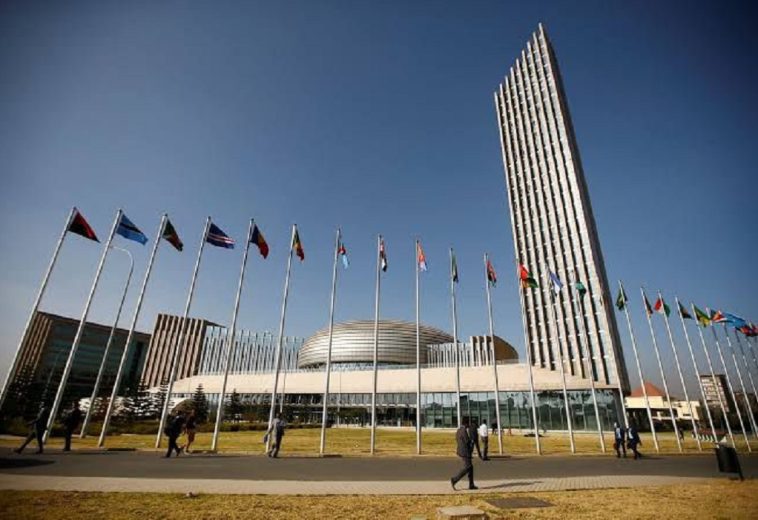Since gaining independence from colonial rule, Africa has embarked on a journey of political stability, social development, and economic growth. A critical pillar in this transformation is an effective judicial system, which upholds the rule of law, protects human rights, ensures justice, and fosters an environment conducive to sustainable development.
READ MORE:http://Judicial Independence: The Guardrails of African Democracy
A strong judicial system is essential for promoting stability and trust both domestically and internationally. Africa’s rich cultural and traditional diversity presents both challenges and opportunities for developing a unified, effective legal framework. Judicial institutions across the continent play a vital role in supporting democratic governance, with an independent judiciary serving as a cornerstone of democratic accountability. Moreover, effective legal systems encourage investment and economic growth by providing the assurance that contracts will be enforced and property rights protected.
Many African nations have implemented constitutional reforms since independence to strengthen their legal frameworks. These reforms often aim to decentralise power, enhance judicial independence, and promote transparency. Notable examples include South Africa, Kenya, and Ghana, where legal systems have undergone significant evolution, emphasizing human rights, democratic governance, and the protection of marginalized groups.
Additionally, regional integration efforts have benefitted from Africa’s judicial frameworks. Institutions such as the African Union (AU) and the African Court on Human and Peoples’ Rights (AfCHPR) have been instrumental in promoting accountability and cooperation across the continent. The AU’s Agenda 2063 prioritises the strengthening of regional courts and the alignment of national and international legal frameworks to foster a more integrated, peaceful, and prosperous Africa.
The African Court of Justice and Human Rights further provides a platform to hold governments accountable for human rights violations, promoting the enforcement of justice on a continental scale.
Challenges Facing Africa’s Judicial Systems
Despite its critical role, Africa’s judicial system faces significant challenges that hinder its effectiveness and public trust.
Corruption and Lack of Independence
Corruption remains a pervasive issue in many African judiciaries. Political interference and undue influence from powerful elites compromise the independence of judges and distort the legal process, perpetuating inequality and eroding public confidence in the judiciary. Instances of bribery, delayed case processing, and coerced rulings are common, undermining the rule of law.
Resource Constraints
Many African countries suffer from underfunded judicial systems, inadequate infrastructure, and a shortage of trained legal professionals. These deficiencies lead to significant backlogs in case processing, overcrowded courtrooms, and delays in delivering justice. The resulting inefficiency often pushes the public to rely on informal justice mechanisms, such as traditional courts or community-based dispute resolution systems, which may not align with international human rights standards.
Accessibility and Public Awareness
A lack of judicial literacy among citizens exacerbates these challenges. Complex legal procedures, limited access to legal aid, and high costs often discourage people from seeking formal justice, particularly in rural areas.
Pathways to Reform
Addressing these shortcomings requires concerted efforts across multiple dimensions:
Strengthening Judicial Independence
- Ensure the judiciary operates free from political interference.
- Promote transparent processes for the appointment and protection of judicial officers.
Increasing Resources and Capacity
- Allocate adequate funding to improve judicial infrastructure, reduce case backlogs, and support the training of legal professionals.
- Invest in modern technology to enhance efficiency, transparency, and accessibility within the judiciary.
Promoting Legal Awareness
- Improve judicial literacy among the public through simplified court procedures, expanded legal aid, and support for community-based justice initiatives.
- Encourage grassroots education campaigns to raise awareness about citizens’ rights and legal recourse options.
Strengthening Regional Institutions
- Enhance the capacity of regional courts like the African Court on Human and Peoples’ Rights and ensure their rulings are respected and enforced.
- Foster regional cooperation to address cross-border issues such as human trafficking, corruption, and refugee protection.
Africa’s judicial systems hold immense potential to drive political stability, economic growth, and social justice. By addressing issues such as corruption, resource constraints, and inequality, African judiciaries can evolve into stronger, more reliable institutions capable of delivering justice to all citizens.
While the challenges are considerable, the opportunities for reform are equally significant. A fair, efficient, and transparent judiciary can serve as a foundation for democratic governance and sustainable development across the continent, unlocking a future of greater stability and prosperity for Africa’s diverse populations.


